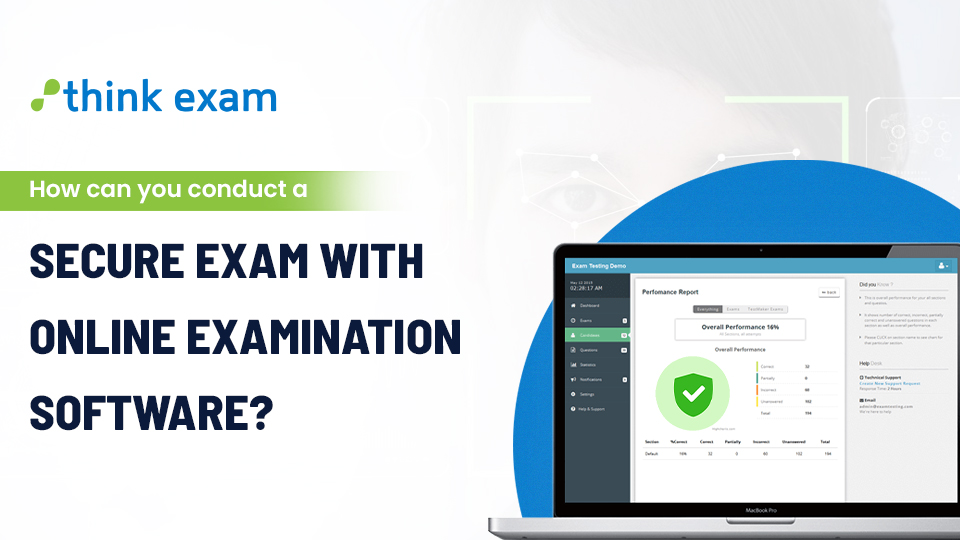Online examinations are becoming popular and necessary. Many universities and colleges are adopting a modern method of online exams. Due to the covid scenario, technology has come up with an alternative of conducting secure exams. Online exams without a secure environment can hamper the overall process of organizing a safe examination. Technology in education is bringing global change. It is altering every aspect of learning resulted in that schools and colleges are looking beyond classroom learning.
What is online examination software, How Think Exam works?
Online examination software plays a significant role in conducting exams remotely with suitable technology and equipment. It creates a cheat-proof examination for conducting exams with a remote proctoring solution.
Benefits of Think Exam software
- Ensure security: Online examination software offers multiple options to a test taker. It can reduce the risk of cheating. Although, remote proctoring keeps a check on the student’s suspicious behaviour and ensures the integrity of the exam.
- Offer accurate results and time: Teachers might make mistakes while calculating marks. Online examination software offers accurate results and saves time.
- No far examination centres: Technology has paved its way in education. Online examination software plays a significant role in allowing students to give exams remotely. In the online examination, surveillance becomes simple with web came and microphone.
- Wider reach: In remote proctoring exams, students can attempt exams without going anywhere. It also gives opportunity to the people who are giving far away.
- Cost-effective: Conducting paper-based exams involves high costs, such as test center, cost of the invigilator, question papers, and answer sheets. As far as online examination is concerned, it reduces the charge of such arrangements.
Online Examination Trends
Online examination has replaced the traditional form of exams, as it comes with numerous benefits. It provides a functional mechanism to conduct exams with diminished administrative cost. Many entrance exams in education institutes, recruitment hiring, and psychometric tests for analyzing personality are regulated online. While switching to online examination, you need to ensure to implement the best technology for practice and should be verified.
Online examination software provides reliability and flexibility in controlling end-to-end processes from the processing question paper to processing results. Exam security refers to conducting a fairer examination. There should not be any scope of cheating in the online exam. Security is crucial in the exam to avoid any malpractices or any unauthorized access to information.
Ways to conduct secure online exams with ThinkExam
- Video Proctoring: The primary benefit of an online exam is it can be conducted remotely. A person can give the exam from a remote location. It minimizes the risk of malpractices with a remote proctoring solution. It gives you the freedom to monitor the exam from a remote location.
- Image Proctoring: Image proctoring is another mechanism of remote proctoring. It plays a significant role in conducting exams with a limited internet connection. In image proctoring, the web camera captures the image of the candidate giving an exam.
- Face Recognition: Face recognition is paired with image and video recording. It eliminates the face malpractices permanently. Complete software is equipped with image/video proctoring, and AI faces recognition technology to bridge the gap between the online examination process and online exam authority. It compares the picture of the student attempting the exam with face recognition and permits the candidate to give the exam.
- Secure Browser: Online examinations require full-fledged internet access. It might sound like an open ground for cheating for students. But it can turn out to be a nightmare with secure browser technology. It is a preventive mechanism that forbids students from accessing any additional browser other than which he is linked with the online exam.

